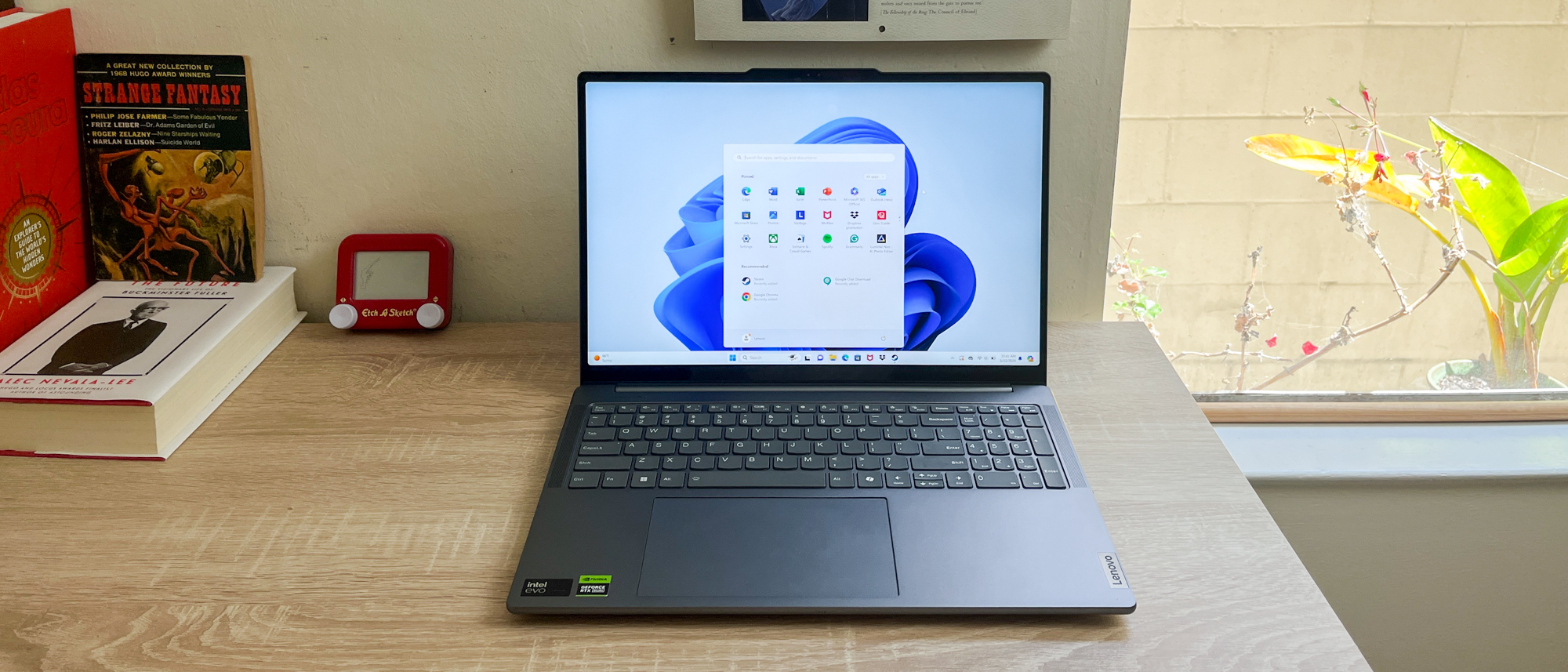I watched all of ‘Black Mirror’ season 7 — these are the episodes not to miss
So many feels
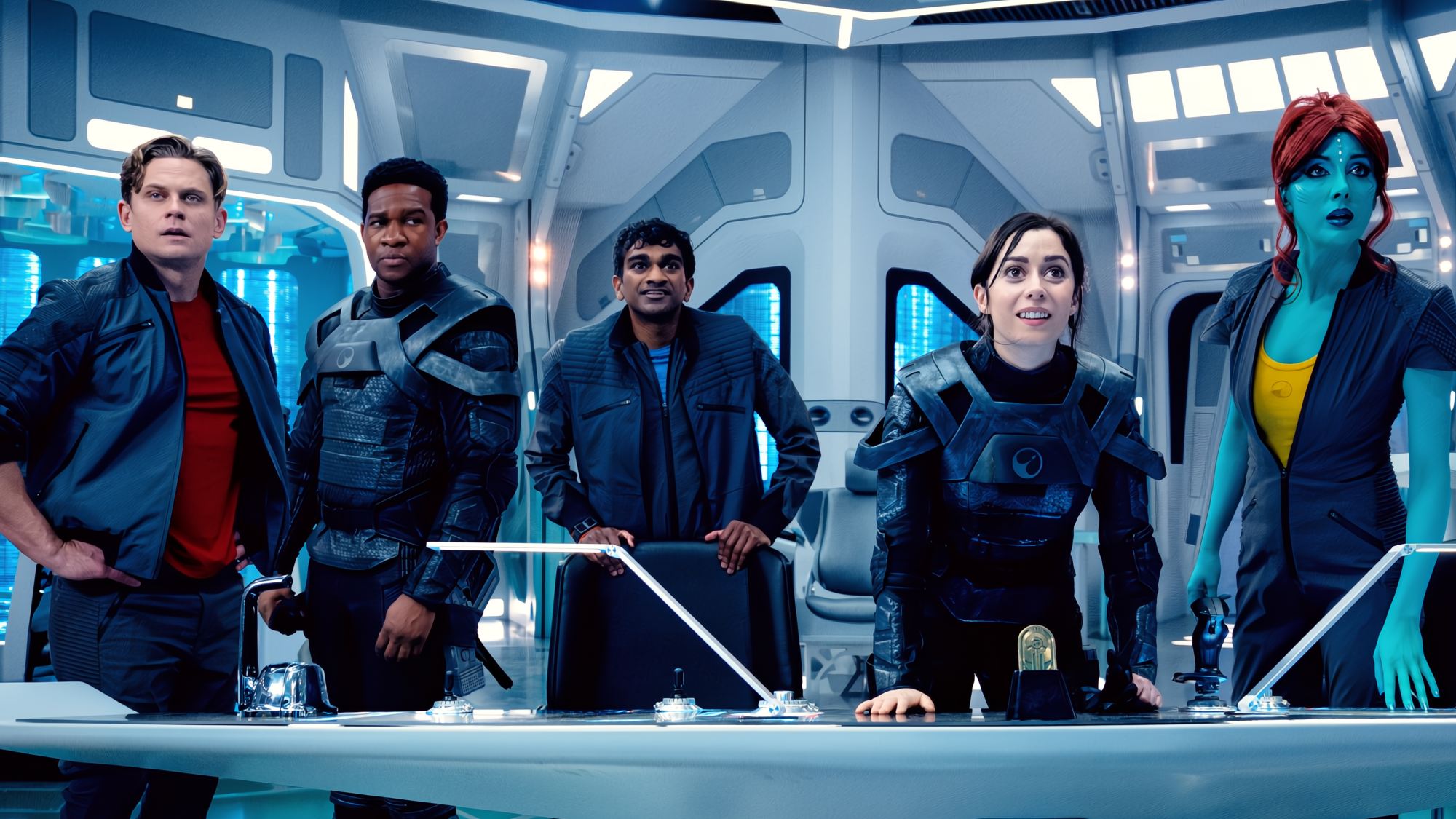
“Black Mirror” season 7 has been one of my most anticipated Netflix releases of spring 2025, especially after that first trailer teased some bleak episodes. Now that it’s finally streaming, I can honestly say I didn’t expect it to be this emotional.
I know “Black Mirror” isn’t exactly a stranger to breaking your heart. Episodes like “Be Right Back” and “The Entire History of You” come to mind — ones that hit you right in the gut. But season 7 really feels like it takes things a step further when it comes to emotional depth. Some moments genuinely caught me off guard.
Each season has always offered up a variety of stories that are usually dark, twisted, and reflective of the worst sides of tech and human nature. But this time around, it feels like Netflix leaned harder into character studies. Sometimes that really works, and sometimes … not so much.
Here’s my full verdict on “Black Mirror” season 7 after watching all six episodes. And don’t worry, I’ll be avoiding major spoilers.
Hits you where it hurts most: the heart

“Black Mirror” season 7 surprised me — not because it was shocking or disturbing (though it definitely had some of those moments), but because it felt so deeply human. Some of these episodes pulled at my heartstrings enough to have me reaching for tissues.
There are three episodes in particular that really stuck with me, and it’s because each one tells a heartbreaking story in its own way, with some of them being especially clever in how they're executed.
The first episode, titled “Common People,” is a strong opener for the season and kind of mentally prepares you for what’s coming. After a sudden medical crisis leaves Amanda (Rashida Jones) clinging to life, her husband Mike (Chris O'Dowd), desperate to save her, turns to Rivermind — a high-tech system promising to keep her alive, no matter the cost.
As you'd expect, tech isn’t always the problem because it’s usually the people behind it. Jones and O'Dowd are basically the only characters we spend real time with (aside from a recruiter from the company), and it works because you get pulled right into their bubble.
You feel the highs, the fear, the desperation in every decision they make. And what it really means to do anything for the person you love.
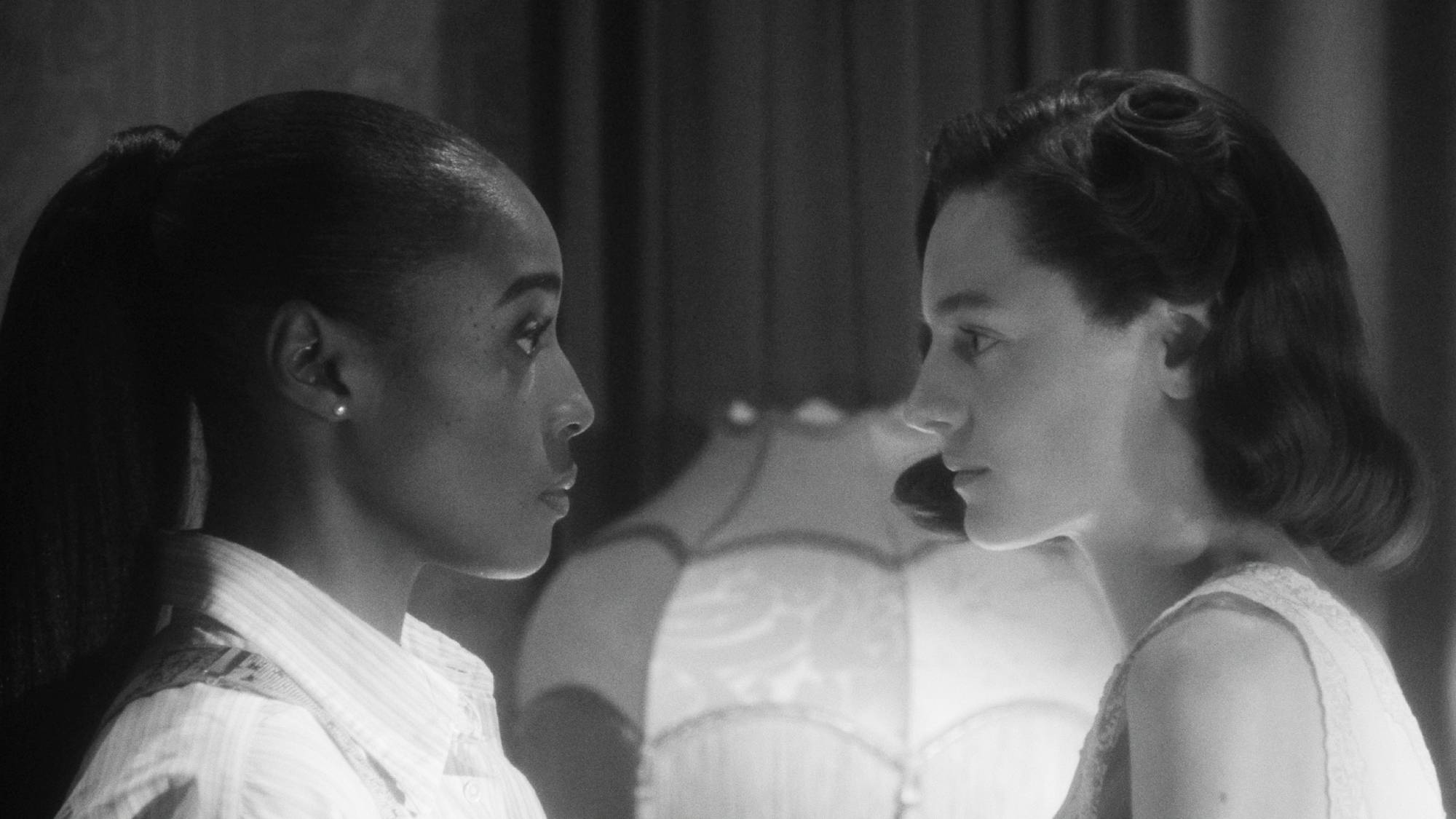
“Hotel Reverie” is more surreal but just as emotionally heavy. In this third episode, Hollywood A-lister Brandy Friday (Issa Rae) finds herself trapped in a high-tech, immersive remake of a vintage romantic movie. To make it home, she’s got to stick to the script.
The original movie stars Emma Corrin as the lead actress, Clara. In the remake, Brandy steps into the role of Doctor Palmer, navigating the story and hitting key plot points to avoid triggering any plot holes that could trap her there. While the setup of being pulled into an AI-generated film world sounds disturbing, it turns out to be surprisingly sad.
Corrin and Rae have some sizzling chemistry on screen, enough to keep you engaged in the story and evoke just the right amount of emotion when things heat up.
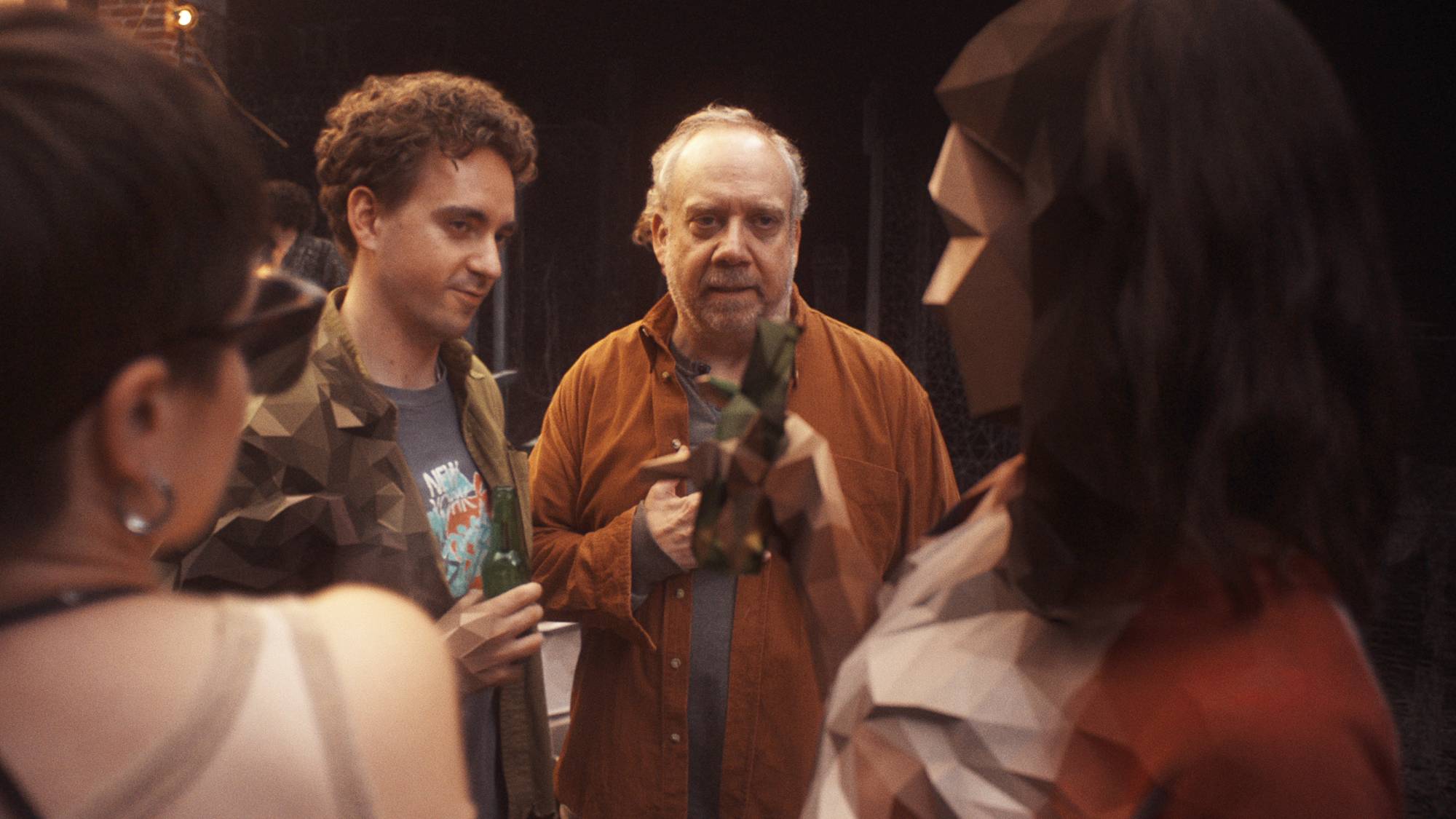
And finally, the fifth episode, “Eulogy,” completely gutted me. It’s all about grief and how easy it is to take people and special moments for granted. It follows Phillip (Paul Giamatti), a lonely man who uses this new system that lets users literally step into photographic memories of the past.
He’s led through the most heartbreaking moment of his life: finding out that someone who once meant everything to him has passed away. The system’s Guide (Patsy Ferran) helps him revisit old photos with her, trying to get him to remember her face. But the journey to that moment is slow, incredibly depressing and quietly beautiful.
Giamatti brings such a soft, aching sadness to the role. You can really feel his pain, especially when you learn he’s scratched out most of the photos just to avoid remembering.
These episodes aren’t just stories about tech gone wrong or the dangers of using such systems. They’re about how humans break, how they love, and how they desperately try to hold on to what’s already gone. That’s why these three episodes are some of the most emotional the show has ever done.
Some episodes left me feeling empty

Unfortunately, there are a couple episodes that drag this season down a bit. But I kind of expected that — most “Black Mirror” seasons have one or two that don’t quite measure up to the rest. Sure, they might please some people, but compared to the emotional weight of the stronger episodes, episodes 2 and 4 just didn’t land for me.
Episode 4, titled “Plaything,” is arguably the weakest. Set in a near-future London, it follows an eccentric murder suspect somehow tied to a strange video game from the 1990s — a game full of cute, evolving artificial lifeforms.
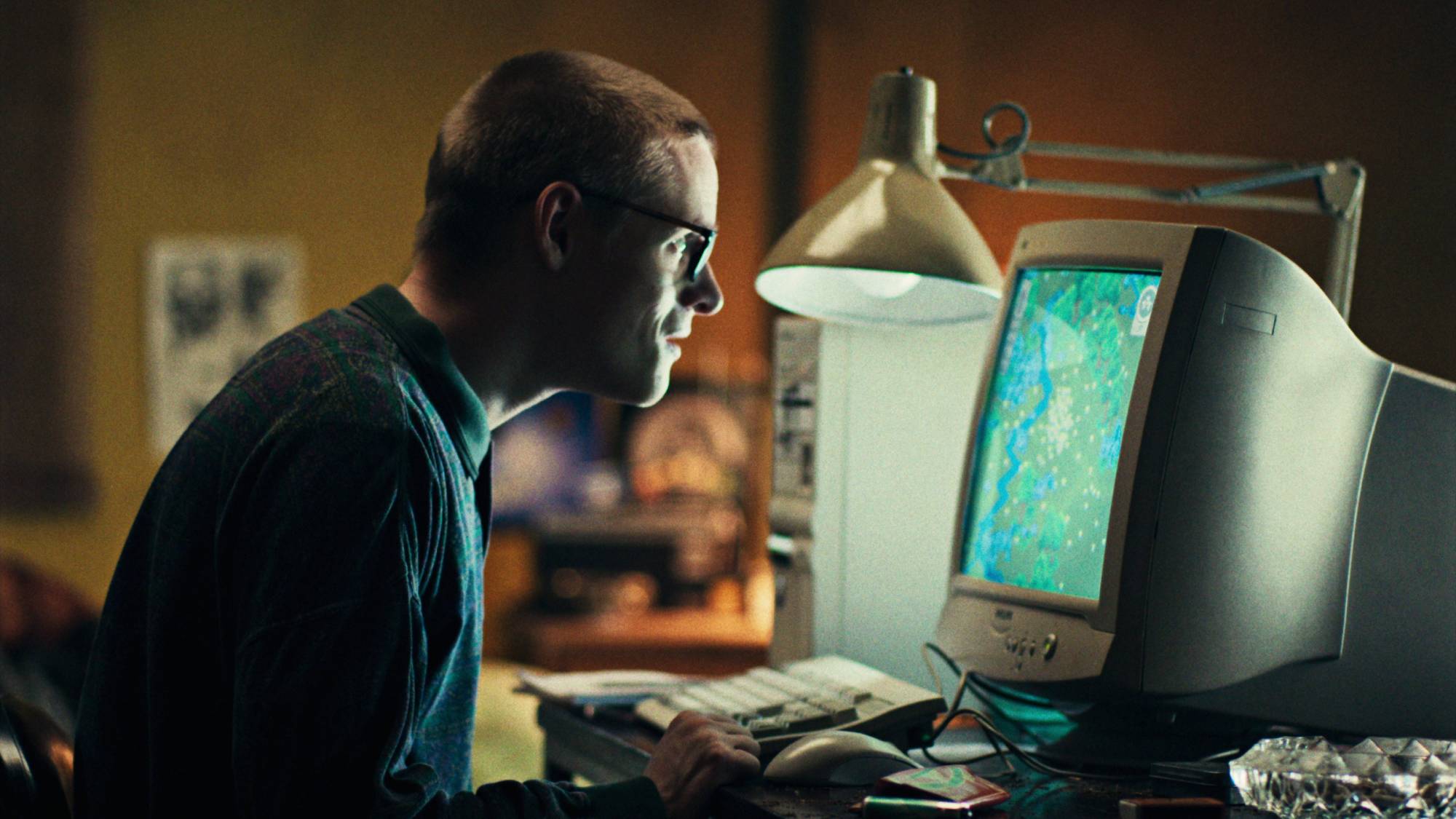
After watching all 45 minutes, I was left feeling a little empty. I expected more, especially with Will Poulter (from “Bandersnatch”) making an appearance and Peter Capaldi as the lead.
Most of the issue comes down to the ending since it feels rushed. I won’t spoil anything, but the episode builds toward something way more intense, and the last ten minutes just didn’t match my expectations. Hell, I even expected some mind-blowing plot twist.
That said, Capaldi gives a compelling performance as Cameron Walker, a man obsessed with the weird little characters in a scrapped video game. And Lewis Gribben, who plays a younger Cameron, was definitely the standout — honestly, he’s the reason I stuck with it.

The second episode, on the other hand, actually started off pretty solidly. It did a great job of holding my attention and keeping me curious for the first 30 minutes.
But, much like episode 4, the ending completely took me out of it. I was really disappointed. Not only did it totally mess with the tone the episode had built up, but the plot twist was super predictable.
“Bête Noire” centers on Maria (Siena Kelly), a successful executive at a major chocolate company who seems to have it all together until a familiar face from her school days reappears. Verity (Rosy McEwen), a woman Maria hasn’t seen in years, turns up as a participant in a product-tasting session.
What should’ve been a sweet, nostalgic reunion quickly turns unsettling. There’s something off about Verity … and strangely, Maria’s the only one who seems to notice.

A premise like this is genuinely intriguing, and the episode does a solid job of building on that. It keeps getting more and more unsettling, pulling us into Maria’s paranoia. Verity is incredibly off-putting — everything from the way she talks to how she interacts with Maria had me on edge, and I couldn’t wait to see what kind of confrontation would unfold.
Thankfully, “Bête Noire” holds onto that tension and mystery for most of its runtime. The explanation near the end actually made me want to rewatch it, just to catch all the subtle clues I missed the first time.
But then… the final ten minutes happened, and I found myself going “wtf?” — and not in a fun “Black Mirror” kind of way. It’s hard to explain without spoiling anything, but let’s just say the twist takes a turn into proper wacky territory. It left the whole episode feeling like a bit of a waste, like all that build-up deserved a better payoff.
Episode 6 is the best of the bunch … and one to watch first
Most "Black Mirror" fans probably figured the sequel to “USS Callister” would end up being the best episode of the season just based on the cast and story alone.
In “USS Callister: Into Infinity,” the crew of the titular ship, led by Captain Nanette Cole (Cristin Milioti), are stuck in an endless virtual universe, fighting to survive against 30 million players. This episode is pure chaos from start to finish, and I had an absolute blast watching it.
That’s exactly why I’d say this is the episode to start with. Netflix recommends watching the season in order (though I didn’t notice much difference either way), but if you want to kick things off with something big, “Into Infinity” is the way to go.
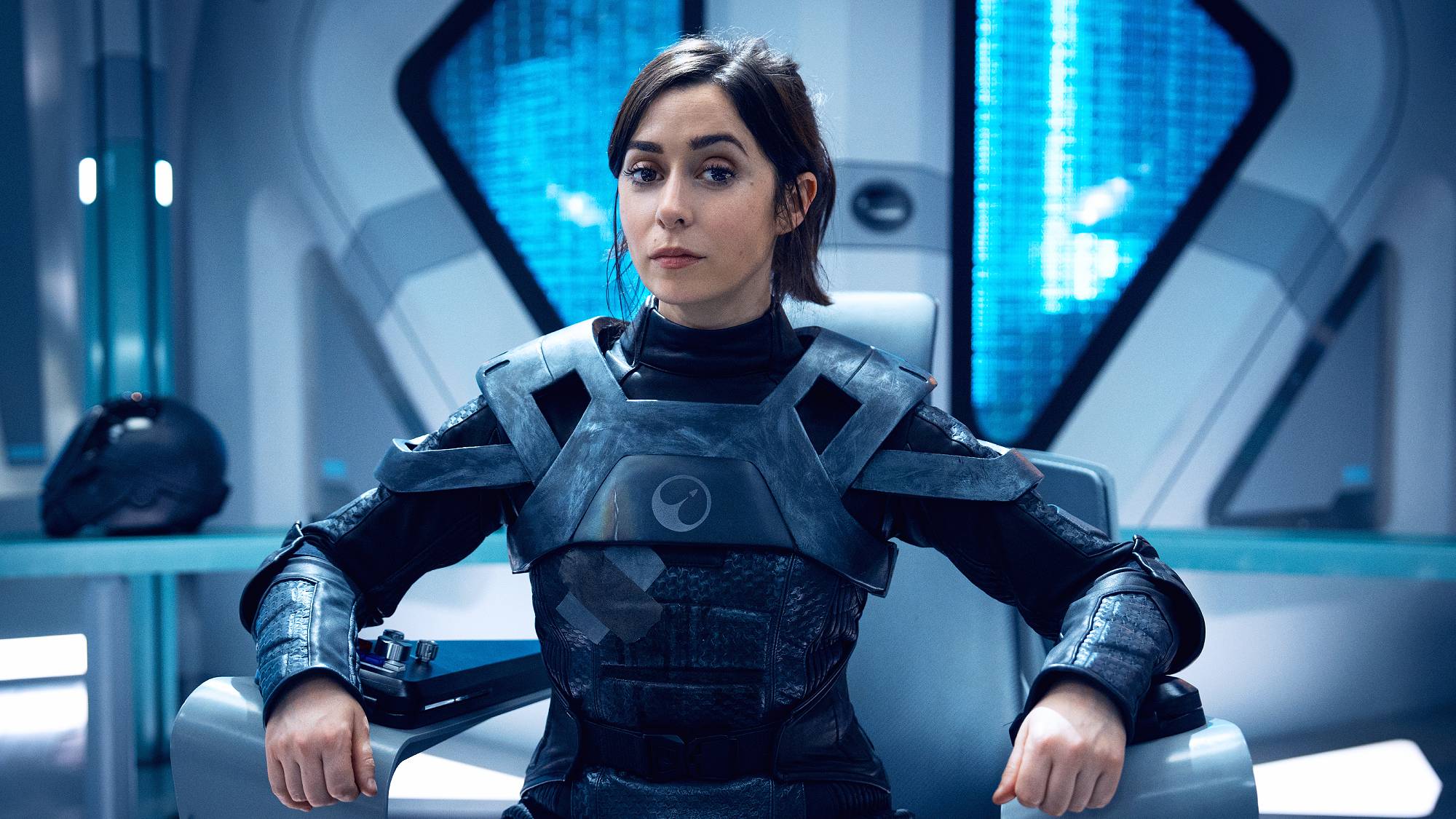
This episode is actually the longest of the season, running at about an hour and 28 minutes — essentially a full-length movie. I think that’s part of what makes it work so well; we’re fully immersed back in the world of one of the show’s most-watched episodes. Over the course of those 88 minutes, I was never once bored.
In this sequel, the characters are still virtual clones, but now they’re essentially humans trapped in a video game. For the other players, it’s just another game, and shooting people doesn’t faze them. But for Nanette and her team, it’s a matter of life or death, as they can’t simply quit and wake up.
As you’d expect from a sci-fi thriller, there are plenty of spaceship battles, explosions, and mounting tension as the real Nanette realizes that the clones are still trapped inside. The episode does a great job of jumping between the clones’ struggles and the real-world issues their counterparts are facing.

Most of all, it brings back that disturbing, twisted vibe of the crew being haunted by the trauma Robert Daly inflicted on them. Thankfully, “Into Infinity” takes a few minutes to revisit what happened in the original episode and explain how the characters ended up in their current situation, including the consequences of Daly's cloning device.
The finale is a blast — haunting, emotional, and one I’m definitely more inclined to revisit. If you’re looking to start the season on a high note, definitely watch episode 6 first. But if you want to finish strong, I’d recommend watching the episodes in order.
“Black Mirror” season 7 might not be the strongest overall, and I honestly wish there were more episodes, but this is a solid set that’s well worth diving into.
Stream "Black Mirror" season 7 on Netflix now.
More from Tom's Guide
Sign up to get the BEST of Tom's Guide direct to your inbox.
Get instant access to breaking news, the hottest reviews, great deals and helpful tips.

Alix is a Streaming Writer at Tom’s Guide, which basically means watching the best movies and TV shows and then writing about them. Previously, she worked as a freelance writer for Screen Rant and Bough Digital, both of which sparked her interest in the entertainment industry. When she’s not writing about the latest movies and TV shows, she’s either playing horror video games on her PC or working on her first novel.
You must confirm your public display name before commenting
Please logout and then login again, you will then be prompted to enter your display name.
